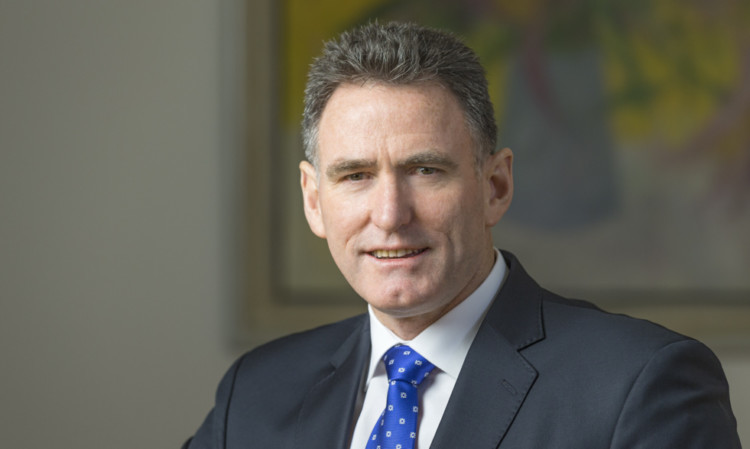A shares surge added £2.5 billion to the value of state-backed Royal Bank of Scotland yesterday after it reported a doubling of quarterly profits.
Edinburgh headquartered RBS, which is 81% owned by the taxpayer, said profit before tax had risen to £1.64 billion from £826 million in the same period last year.
Shares in the bank surged more than 10% ahead in morning trading yesterday, despite a warning from Mr McEwan that there were still “plenty of issues from the past to reckon with.”
The update was the first since the group announced an £8.2bn loss for 2013 and launched a mammoth overhaul to slash costs by £5bn within three years.
On this occasion, there were no new costs revealed relating to past scandals, litigation or “bad bank” provisions – a staple of recent market disclosures.
RBS said it had seen a modest revival in lending volumes during the quarter, with improvements in UK retail and business banking while income from its markets business was lower as it shrunk its balance sheet. Costs also fell.
Mr McEwan said the latest figures showed the “great job” RBS could achieve while in a “steady state.”
However, he cautioned that “we still have a lot of work to do and plenty of issues from the past to reckon with.”
Conspicuous by its absence was any mention of plans to start returning the taxpayer stake to the private sector – a feature of the equivalent update last year.
While the share surge saw the price climb close to 350p, it remains well off the 500p needed for the Treasury to achieve “break even” value on its £45 billion rescue of the bank at the height of the financial crisis.
Meanwhile, Mr McEwan said that he would do what it takes to hold on to highly-paid bankers affected by the Treasury’s veto on its plans to be able to pay 200% bonuses.
The update noted that all the group’s major competitors planned to be able to pay bonuses at twice the rate of salary – a move that requires shareholder approval under new European rules.
However, RBS is limited to paying 100% bonuses and the bank said the situation created a “commercial and prudential risk which it must try to mitigate.”
Mr McEwan acknowledged that executive packages were an “emotive issue” but said RBS was a “back marker” on pay.
The New Zealander said: “We are not going to pretend that this is ideal.
“Not having the flexibility does involve an element of risk for us but it is a risk that I as chief executive am going to have to manage and we are having to make some changes to those people to make sure we hold on to them.”
In its trading update, RBS said it was seeing increasing economic confidence in some areas and expected a modest increase in margin for the remainder of the year.
But it is likely to be hit by costs as part of its restructuring plan that are “considerably higher”.
The bank also admitted that it would continue to be haunted by legacy issues which have already cost it billions of pounds over issues such as payment protection insurance mis-selling.
RBS said: “The ongoing conduct and regulatory investigations and litigation continue to create challenges and uncertainties for RBS, as for other banks. The timing and amounts of any further settlements or redress remain uncertain.”
The bank added that it was on course to achieve targets for improving the level of capital on its balance sheet – a measure lenders have been ordered to take by regulators in the wake of the financial crisis, to bolster their ability to absorb shocks.
Shore Capital analyst Garry Greenwood said: “While ‘one swallow doesn’t make a summer’, we believe that the Q1 2014 outcome represents an excellent start to the year for the group following recent disappointment.
“That said, there is still plenty of work to do before RBS gets back to being a ‘normal’ bank.”
